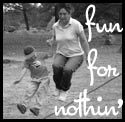For Solilo.
--
"In India's most populous state of Uttar Pradesh, where most of the nation's polio cases are reported there have been rumours that the polio vaccine is part of a plot to sterilize Muslim children."
India polio survivor stars in Oscar-nominated film
Amid all the hoopla over the Oscar winning sweep by Slumdog Millionaire, there's a touching real-life Indian tale of beating the odds that was also vying for the prized golden statuette in the short documentary feature, one that was eventually one by Smile Pinki.
The Final Inch is a 38-minute US film that documents global efforts to finally eradicate polio and profiles one of those stricken by the paralysing illness, 25-year-old Mohammad Gulzar Saifi, from the north Indian city of Meerut, AFP said.
'Polio is not a disease, it's a disaster for many,' said Saifi, who wears leg braces and moves with the help of a battered metal walker too small for his slender five-foot frame.
'I was lucky, I had a good family who looked after me but what about those who don't, those who are abandoned? I appeal to everyone to get their child vaccinated against polio,' he said.

The title The Final Inch refers to the fact that health officials say polio, which can paralyse a child for life within hours, is on the brink of being eliminated, thanks to mass immunisation.
But the illness is proving tougher to wipe out than initially expected and remains endemic in India, Pakistan, Afghanistan and Nigeria, where 1,643 cases were reported last year.
India reported the second highest caseload at 556, according to WHO's Global Polio Eradication Initiative.
A key hurdle to combating the disease in densely-populated India is the fact that tens of millions of children live in unsanitary conditions where diarrhoea is rampant, health officials say. Polio is spread through faeces.
Also in India's most populous state of Uttar Pradesh, where most of the nation's polio cases are reported and where Saifi's city of Meerut is located, there have been rumours that the vaccine is part of a plot to sterilize Muslim children.
A number of Muslim clerics have joined a government campaign to fight polio, saying there is no truth to the rumours.
But while the rumours have played some part in the difficulty in combating the disease, poor hygiene and logistical problems - making sure the multiple-dose oral vaccine gets to every child from the dense cities to the remotest regions - are the biggest hurdles to eliminating the disease.
Saifi hopes his central role in the documentary, made by Oregon filmmaker Irene Taylor Brodsky, will help in the eradication efforts.
'Polio has no religion, it is religion-less. It doesn't just affect Muslims, it affects Hindus, it affects everyone,' he said.
'Not to take the polio vaccination is wrong. Polio is an incurable disease but if we have prevention, we don't need a cure,' he said.
And like Slumdog Millionaire, Saifi's tale is also about overcoming challenges and turning adversity into success.
Saifi was raised by his mother and five brothers who supported him after his father became ill and was unable to work.
'I was the only one of my family to receive an education,' said Saifi, who graduated from high school and speaks English fluently.
But after graduation, as for many of India's 70 million disabled who are often reduced to begging at traffic lights, there was no employment for him.
Instead he created a job for himself coaching neighbourhood children, first in a tiny room at his home in a poor district of Meerut.
Then, as the numbers grew, he rented a larger room which proudly bears a signboard declaring it the 'Meharban Coaching Centre' - named after his late father - and the inscription Every child is special.
He tutors 60 children in English, maths and other subjects, charging Rs100 a month for classes, though he adds: 'I don't charge those who can't pay.'
Thanks to his film role, Saifi has become a celebrity in Meerut, a two-and-a-half hour drive from New Delhi.
But he's still not famous enough for the local administration to grant him his most cherished wish - a three-wheel, hand-operated cycle to help him get around more easily.
'The government is supposed to give them to physically challenged people like me, but all I've had is promises, promises,' he said with a wry smile.
(words and picture by AFP)
--
Two close acquaintances of mine have polio, one of them, is in his early 40s, which in the context of the article above, implies that, it lurks in my generation too.
While his one-heavy-one-light tread has become familiar to my ears, and that of Nino's, I can imagine how frustrating school and growing up must have been, even though he does play some mean table tennis.
A is unmarried and I've always been too afraid to ask why, afraid I might hear that no one wants a mis-shapen partner. Though polio has done little to dent his personality in spite of being coupled with an educated but absolutely insensitive family, it has left him vulnerable physically. He suffered polio on the left side of his body, leaving one leg shorter. He suffered a heart-attack when he was in his 30s, even though he was a teetotaller. Two years ago, he suffered a stroke to the brain, the left him handicapped once again: not physically or mentally, but verbally.
A now suffers from Broca's aphasia, a disorder easiest explained as trying to communicate while using English in Paris or Hindi in Chennai. A case of lost communication.
"'There are patients who can fluently say something that sounds like a sentence, but it's just garbage,' said speech language pathologistPaul Rao, vice president of clinical services, quality improvement and corporate compliance at the National Rehabilitation Hospital inWashington, D.C.
'It's one of the least understood disabilities in the world, because these people cannot communicate for themselves.'
The worst part is, cognition is not affected. People think as clearly as they ever did. They simply can't communicate.
Aphasia is believed to affect about one million people in the US, according to the National Aphasia Association."
I've come to believe, as have some doctors, that Polio left A vulnerable, not just outside, but internally as well. His left leg, the heart attack, the stroke on the left side of his brain.
He once had a fantastic voice: full, warm, emotive. Music used to set him free, he used to say, from his bent and de-shaped body, from that disfigurement's social and personal ramifications. When A used to sing his favourite song, Man re tu kaahe na dheer dhare, there was bound to be a lot of sniffing in the room. Today, with his two-word and four-word sentences, A manages to run a successful computer training institute in Jaipur. There's little that's changed in his life, his routine or his family's lack of support. What has changed is that he can't hum his favourite music anymore. He will never be able to sing, even though the tunes play in his head, again and again, ceaselessly.









10 comments:
The last para is such a beautiful summation, if tragedy be allowed that adjective. And what can I give him, what can I do for him? What would I want done for me if I were him? I don't know, so I can only thank you for saying this all in words, for telling and sharing.
NM, that just brought tears to my eyes. Saifi's story is very touching and I had not heard of it before. Glad you made it into a post. My heart goes out to A, thats all I can say...
So many things we take for granted - the ability to smile, to walk equally with both legs, to hum any which song that catches our fancy..
NM, this is so inspiring and touching. Thanks for doing this. I had no clue before. You are a sweetheart for writing it in detail.
We take so many things for granted and are so far away from such harsh realities of life. Saifi is inspiring.
The last sentence was a killer. :( Social workers and government agencies have such a tough time fighting a combination of local godmen, ignorance and apathy, right? I read somewhere the once deep inroads they made in the eradication of polio are not that deep anymore.
Swati - Exactly what props up in my head: what would I have done if I were him? hugs.
Preeti - Intend to keep following up on saifi and whether he got the promised cycle.
Choxbox - I know. Very scary thought, no?
Solilo - no need to say thanks. glad I put it up too.
Suj - Add to that a junta the believes what's not visible is not there. The governement sends this 'sahelis' door to door, to vaccinate the kids with polio drops, and they tell horrifgying stories of people slamming doors on their faces, blaming them for illnesses. And these are volunteers, primary school teachers and district nurses mostly, earning pittance for doing a good deed.
Sometimes tragedy also makes one realize who the truly courageous people are. A is a case in point. I am glad he has chosen to live life despite it all.... and grateful that he has a friend to tell his story to the world.
What a heartrending description of A's life! Life is unfair, isn't it? And to see a person left vulnerable in every way, without support from family! Who can he call his own? For me that was the saddest part, that his family is insensitive, not very uncommon, and that the music left his tongue, very sad!
May God bless him.
Best wishes,
Anjali
Nitya - What seems remarkable about A to me is that he doesn't believe he's leading an extraordinarily difficult life. His fight to 'be', is natural to him.
Anjali - Unfair, yes, totally. Reminds me of how my mum always asked me to be grateful for all that I have instead of whinning about what I don't.
What an amazing person! Thanks for writing such a wonderful post.
Post a Comment